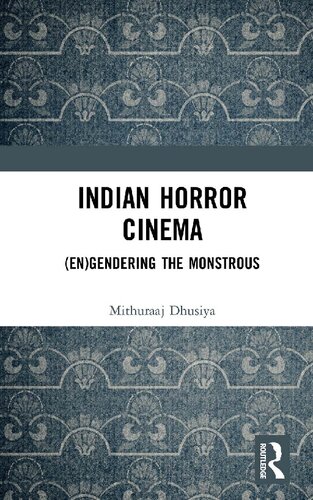

Most ebook files are in PDF format, so you can easily read them using various software such as Foxit Reader or directly on the Google Chrome browser.
Some ebook files are released by publishers in other formats such as .awz, .mobi, .epub, .fb2, etc. You may need to install specific software to read these formats on mobile/PC, such as Calibre.
Please read the tutorial at this link. https://ebooknice.com/page/post?id=faq
We offer FREE conversion to the popular formats you request; however, this may take some time. Therefore, right after payment, please email us, and we will try to provide the service as quickly as possible.
For some exceptional file formats or broken links (if any), please refrain from opening any disputes. Instead, email us first, and we will try to assist within a maximum of 6 hours.
EbookNice Team

Status:
Available4.7
37 reviewsThis book studies the hitherto overlooked genre of horror cinema in India. It uncovers some unique and diverse themes that these films deal with, including the fear of the unknown, the supernatural, occult practices, communication with spirits of the deceased, ghosts, reincarnation, figures of vampires, zombies, witches and transmutations of human beings into non-human forms such as werewolves. It focusses on the construction of feminine and masculine subjectivities in select horror films across seven major languages – Hindi, Tamil, Telugu, Kannada, Bangla, Marathi and Malayalam.
The author shows that the alienation of the body and bodily functions through the medium of the horror film serves to deconstruct stereotypes of caste, class, gender and anthropocentrism. Some riveting insights emerge thus, such as the masculinist undertow of the possession narrative and how complex structures of resistance accompany the anxieties of culture via the dread of laughter.
This original account of Indian cinematic history is accessible yet strongly analytical and includes an exhaustive filmography. The book will interest scholars and researchers in film studies, media and cultural studies, art, popular culture and performance, literature, gender, sociology, South Asian studies, practitioners, filmmakers as well as cinephiles.